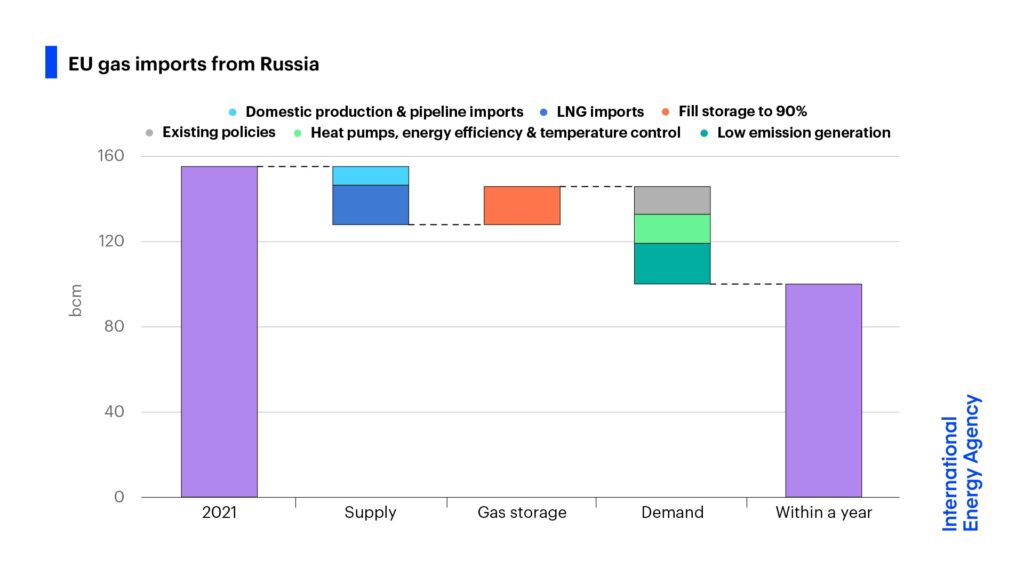With energy prices set to rise, it’s an unpredictable time for everyone. Circumstances in Ukraine and Russia are changing daily. And COVID lockdowns in China have led to a drop in oil demand, which means energy prices are fluctuating from one day to the next.
But should the UK and Europe cease trading with Russia, how easy will it be to replace?
With heavy sanctions placed on Russia, here is how it affects imports to the UK:
Gas
Only 3% of the UK’s gas is imported from Russia, lower than most European countries. Around half of our gas comes from the North Sea, a third from Norway, and the rest is imported from Qatar and the US in liquefied natural gas (LNG) form.
Crude oil
The UK imports 8% from Russia. Not significantly high as we produce and export a significant amount of oil and petroleum. Also, any we import comes from the USA, Saudi Arabia and the Netherlands.
However, due to the war, the UK Government has announced it will phase out all oil imports from Russia by 2023.
Although the UK only imports 3% of its gas and 8% of its oil from Russia, the figures are different in Europe.
Gas
Around 90% of the gas in Europe is imported, with half coming from Russia. The biggest importers, according to Statista, include:
And although Russia is yet to cut gas supplies, if they do, it could lead to a catastrophic energy crisis across Europe.
Crude oil
According to The Washington Post, the largest oil importers from Russia in Europe are:
Other significant importers include Romania, the Czech Republic, Slovakia and Bulgaria.
With sanctions set to cause disruption both ways, other countries and providers could step in…
Crude Oil
When it comes to oil, these countries could produce the following number of spare barrels per day:
Gas
Russia’s main gas competitor, Norway, is already running at close to maximum capacity.
So, one option is for countries to import LNG as a short-term fix. Germany is expected to look to Qatar for this and other European countries for gas. While Algeria, which has pipelines to Italy and Spain, could supply the whole of Europe in the future.
The International Energy Agency has also detailed a 10 point plan for the EU to reduce demand which is illustrated in the graph below.

To help you combat upcoming price rises, whether at home or in your business, here are a few energy-saving ideas we suggest:
At Home
Insulation can reduce costs and heat loss, but it’s expensive. And unless the Government ramps up support or offers a grant, it’s likely too expensive for most homeowners. However, if it’s within budget, make it a priority.
If insulation is off the table, draft proofing is an effective way of keeping the cold out. So, make sure to check:
To find out more about draft proofing, visit the Energy Saving Trust website.
If you’re considering electric heat pumps, we’d caution against them. They’re a great solution on paper but can cost up to 10k to install. Instead, only heat rooms you live in, like your living room and bedroom. If you have rooms you barely use, only heat them when in use.
And one more money-saving tip – reduce your driving speed.
Slowing down saves on fuel costs which are soaring at the pumps.
Business
Whether your focus is cost, energy security, climate change mitigation, or all 3, the following are things all commercial and residential energy users can take action on:
Energy efficiency is key, so acting now will reduce the impact of price rises, whether at home or at work.
At Inteb, we’re helping our clients during these times enjoy benefits, like:
✔ New business opportunities
✔ Reducing energy and environmental impacts
✔ Cost savings and reduced overheads
✔ Reducing vulnerability to energy price fluctuation
✔ Lowering insurance costs
✔ Productivity gains
✔ Improving energy performance
✔ Developing policies that result in efficient use of energy and consumption
✔ Accurate energy measurements
✔ ISO 14001 and 50001
Working with clients in the health and commercial real estate sectors we use real-time data to cut unnecessary waste in high energy-intensive parts of their operations, such as staff cafeterias and general lighting. By partnering with in-house maintenance teams, we’re able to identify quick wins contributing to significant savings without spending a penny.